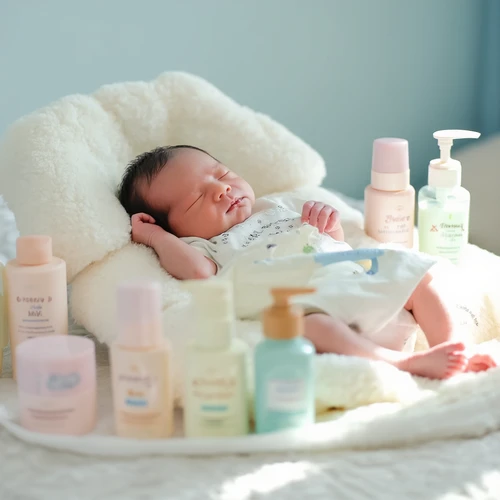Welcome, new parents! The first few months are all about protecting your baby’s delicate skin from the harshness of the outside world. A gentle, consistent routine can prevent irritation, rash, and even long‑term sensitivity. This guide will walk you through everything you need to keep that tiny, rosy complexion safe and healthy.
Understanding your baby's skin is the first step. Compared to adults, newborn skin is thinner, has a higher water content, and a lower pH level of around 5.5. It also lacks the mature lipid barrier that adults have, making it more vulnerable to drying agents and allergens. Treat it with softness and respect.
Daily cleansing should be a brief, soothing ritual. Use lukewarm water and a handful of plain water‑based wipes or a cotton ball dampened with water. A mild, fragrance‑free baby cleanser can be added once a week—no more than twice a day—because over‑washing strips away natural oils. Wrap the baby in a soft towel, pat dry, and don’t rub.
Moisturizing and barrier protection help strengthen the skin’s natural defenses. Look for products enriched with ceramides, glycerin, or petrolatum, which lock in moisture. Apply a thin layer on the baby's face, neck, and diaper area after washing. A tiny amount is all you need; more is not better.
Avoiding irritants and allergens keeps a rash at bay. Stick to hypoallergenic detergents for baby clothes and blankets, and rinse thoroughly. Choose diaper wipes that are alcohol‑free and free of dyes or fragrances. When bathing, use gentle, sulfate‑free baby shampoos and avoid using adult soap directly on the newborn’s skin.
Diaper rash prevention is a common concern. The key is keeping the area dry and breathable. Change diapers promptly, use a barrier cream, and allow the baby to have some diaperless time, if possible. For persistent rash, consult your pediatrician for a prescription ointment.
When to seek professional advice? A baby skin reaction that lasts more than a few days, spreads rapidly, or is accompanied by fever, swelling, or a foul odor signals a more serious condition. Always err on the side of caution—contact your pediatrician or a dermatologist experienced in infant care.
Product recommendations that blend safety with effectiveness include:
- Cleanser: Vanicream Gentle Skin Cleanser
- Moisturizer: Aquaphor Healing Ointment or CeraVe Baby Moisturizing Cream
- Diaper rash: Desitin Maximum Protection Cream or Boudreaux’s Butt Paste
- Detergent: All‑Rite Sensitive, Hypoallergenic Baby & Toddler Detergent
Remember, consistency is more important than perfection. Stick to a routine, monitor your baby’s skin for changes, and adjust gently. Your newborn’s skin thrives on calm, gentle care—give them the best start to a healthy life.


